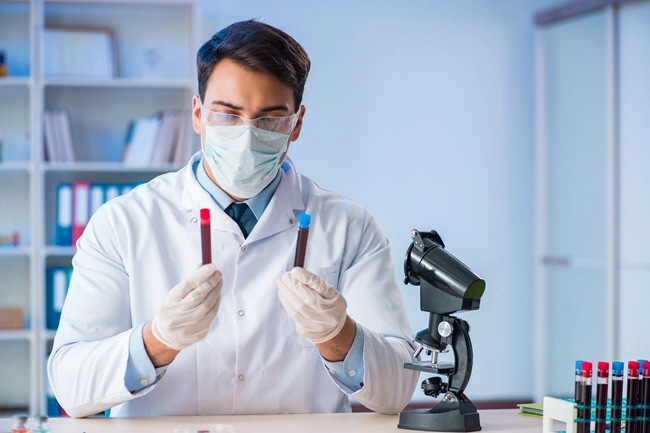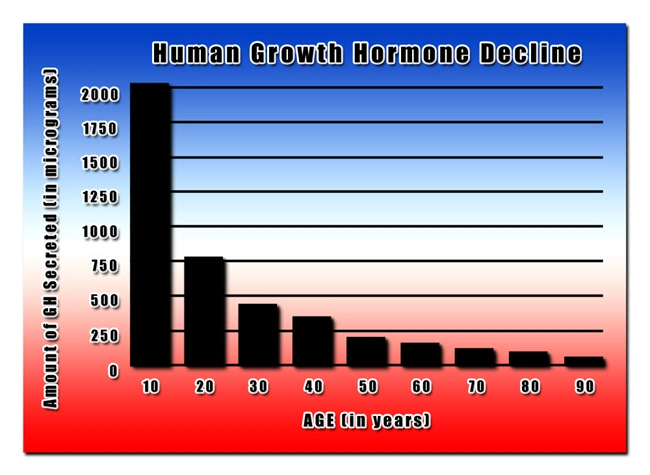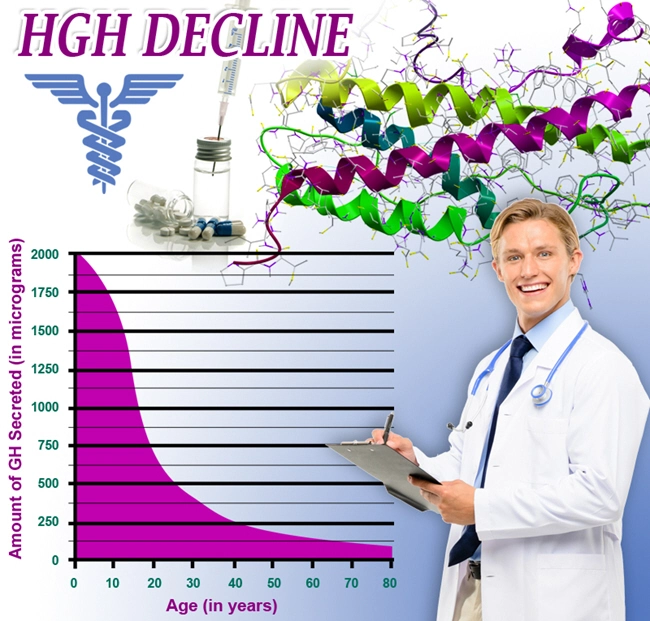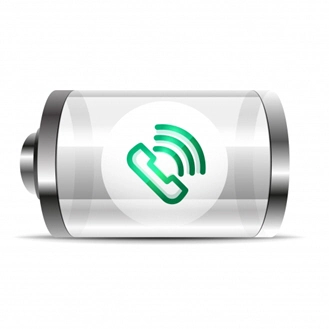
Introduction to Secondary Hypogonadism
Secondary hypogonadism, also known as hypogonadotropic hypogonadism, is a medical condition characterized by the inadequate production of testosterone due to dysfunctions in the pituitary gland or hypothalamus. These areas of the brain are responsible for signaling the testes to produce testosterone, a crucial hormone that plays a significant role in male health, including energy levels and vitality. In the United States, this condition is increasingly recognized as a contributor to diminished quality of life among men.
The Role of Testosterone in Energy and Vitality
Testosterone is not merely a sex hormone; it is vital for maintaining muscle mass, bone density, red blood cell production, and most importantly, energy and vitality. When testosterone levels fall below normal due to secondary hypogonadism, men often report a significant decline in energy levels, which can manifest as fatigue, reduced stamina, and a general lack of vigor. This can severely impact daily activities, work productivity, and overall well-being.
Symptoms and Diagnosis
The symptoms of secondary hypogonadism can be subtle and often develop gradually, making diagnosis challenging. Common signs include decreased libido, erectile dysfunction, mood changes, and the aforementioned energy deficits. Diagnosis typically involves a thorough medical history, physical examination, and blood tests to measure testosterone levels. Additional tests may be required to assess the function of the pituitary gland and hypothalamus.
Impact on American Men
In the American male population, secondary hypogonadism is not uncommon, and its effects on energy and vitality can be profound. Men in the workforce, particularly those in demanding careers, may find their performance and job satisfaction compromised. Additionally, the condition can strain personal relationships and reduce overall life satisfaction. The cultural emphasis on masculinity and productivity in American society can exacerbate the psychological impact of this condition.
Treatment Options
Fortunately, several treatment options are available for men suffering from secondary hypogonadism. Hormone replacement therapy (HRT) is the most common approach, where testosterone is administered through injections, gels, patches, or pellets. This can help restore testosterone levels to normal, thereby improving energy and vitality. It is crucial, however, for treatment to be monitored by a healthcare professional to avoid potential side effects and ensure the therapy is effective.
Lifestyle Modifications
In addition to medical treatments, lifestyle modifications can play a significant role in managing secondary hypogonadism. Regular exercise, a balanced diet, adequate sleep, and stress management techniques can help improve overall health and potentially enhance the body's natural testosterone production. For American men, integrating these changes into their daily routine can be particularly beneficial in combating the effects of low energy and vitality.
The Psychological Aspect
The psychological impact of secondary hypogonadism should not be underestimated. Feelings of inadequacy, depression, and anxiety can accompany the physical symptoms, further diminishing a man's quality of life. Psychological counseling or support groups may be beneficial in helping men cope with these challenges and improve their mental health.
Conclusion
Secondary hypogonadism poses a significant challenge to the energy and vitality of American men. Understanding the condition, recognizing its symptoms, and seeking appropriate treatment can make a substantial difference in managing its impact. By addressing both the physical and psychological aspects of this condition, men can regain their zest for life and maintain their health and well-being. As awareness and understanding of secondary hypogonadism continue to grow, more American men can benefit from timely diagnosis and effective management strategies.
Contact Us Today For A Free Consultation
Dear Patient,
Once you have completing the above contact form, for security purposes and confirmation, please confirm your information by calling us.
Please call now: 1-800-380-5339.
Welcoming You To Our Clinic, Professor Tom Henderson.

- Secondary Hypogonadism in American Men: Cardiovascular Risks and Management Strategies [Last Updated On: February 26th, 2025] [Originally Added On: February 26th, 2025]
- Secondary Hypogonadism: Impacts on Cognitive Function and Treatment Options in American Men [Last Updated On: March 18th, 2025] [Originally Added On: March 18th, 2025]
- Secondary Hypogonadism: Understanding Its Impact on Sleep and Health in American Men [Last Updated On: March 18th, 2025] [Originally Added On: March 18th, 2025]
- Stress-Induced Secondary Hypogonadism in American Males: Causes and Management Strategies [Last Updated On: March 18th, 2025] [Originally Added On: March 18th, 2025]
- Secondary Hypogonadism: Symptoms, Diagnosis, and Management Strategies for American Men [Last Updated On: March 18th, 2025] [Originally Added On: March 18th, 2025]
- Secondary Hypogonadism: Understanding Its Profound Psychological Impacts on American Men [Last Updated On: March 19th, 2025] [Originally Added On: March 19th, 2025]
- Genetic Insights into Secondary Hypogonadism in American Males: Diagnosis and Treatment [Last Updated On: March 19th, 2025] [Originally Added On: March 19th, 2025]
- Secondary Hypogonadism in American Males: Impact on Energy and Treatment Options [Last Updated On: March 20th, 2025] [Originally Added On: March 20th, 2025]
- Secondary Hypogonadism and Prostate Health: Impacts, Diagnosis, and Management Strategies [Last Updated On: March 21st, 2025] [Originally Added On: March 21st, 2025]
- Support Systems Crucial for Managing Secondary Hypogonadism in American Men [Last Updated On: March 21st, 2025] [Originally Added On: March 21st, 2025]
- Secondary Hypogonadism and Hair Loss: Causes, Diagnosis, and Treatment for American Males [Last Updated On: March 21st, 2025] [Originally Added On: March 21st, 2025]
- Secondary Hypogonadism: Impacts on Body Composition and Health in American Men [Last Updated On: March 22nd, 2025] [Originally Added On: March 22nd, 2025]
- Exercise Strategies for Managing Secondary Hypogonadism in American Males [Last Updated On: March 22nd, 2025] [Originally Added On: March 22nd, 2025]
- Secondary Hypogonadism in American Males: Pituitary Gland's Role and Treatment Options [Last Updated On: March 22nd, 2025] [Originally Added On: March 22nd, 2025]
- Alternative Therapies for Secondary Hypogonadism: A Comprehensive Guide for American Men [Last Updated On: March 22nd, 2025] [Originally Added On: March 22nd, 2025]
- Secondary Hypogonadism and Anemia: Understanding and Managing the Connection in American Males [Last Updated On: March 22nd, 2025] [Originally Added On: March 22nd, 2025]
- Secondary Hypogonadism's Impact on Immune Function in American Men [Last Updated On: March 23rd, 2025] [Originally Added On: March 23rd, 2025]
- Secondary Hypogonadism's Impact on Skin Health in American Men: Causes and Management [Last Updated On: March 23rd, 2025] [Originally Added On: March 23rd, 2025]
- Environmental Factors Driving Secondary Hypogonadism in American Men: A Comprehensive Analysis [Last Updated On: March 23rd, 2025] [Originally Added On: March 23rd, 2025]
- Secondary Hypogonadism: Impacts on Health and Importance of Early Detection in American Men [Last Updated On: March 24th, 2025] [Originally Added On: March 24th, 2025]
- Secondary Hypogonadism's Impact on Kidney Function: Symptoms, Diagnosis, and Management [Last Updated On: March 24th, 2025] [Originally Added On: March 24th, 2025]
- Nutrition's Role in Managing Secondary Hypogonadism in American Males [Last Updated On: March 24th, 2025] [Originally Added On: March 24th, 2025]
- Understanding Secondary Hypogonadism: Causes, Symptoms, and Treatment in American Males [Last Updated On: March 24th, 2025] [Originally Added On: March 24th, 2025]
- Secondary Hypogonadism and Mood Disorders in American Men: Links and Management Strategies [Last Updated On: March 25th, 2025] [Originally Added On: March 25th, 2025]
- Secondary Hypogonadism and Diabetes: Impact and Management in American Males [Last Updated On: March 25th, 2025] [Originally Added On: March 25th, 2025]
- Thyroid Function's Impact on Secondary Hypogonadism in American Males: Diagnosis and Management [Last Updated On: March 25th, 2025] [Originally Added On: March 25th, 2025]
- Understanding Secondary Hypogonadism: Symptoms, Diagnosis, and Management in American Males [Last Updated On: March 25th, 2025] [Originally Added On: March 25th, 2025]
- Secondary Hypogonadism: Impacts and Management Strategies for American Men's Quality of Life [Last Updated On: March 25th, 2025] [Originally Added On: March 25th, 2025]
- Managing Fatigue in American Males with Secondary Hypogonadism: Causes and Strategies [Last Updated On: March 26th, 2025] [Originally Added On: March 26th, 2025]
- Understanding and Managing Secondary Hypogonadism in American Males: Symptoms, Causes, and Treatments [Last Updated On: March 26th, 2025] [Originally Added On: March 26th, 2025]
- Secondary Hypogonadism in American Males: Lifestyle Factors and Medical Interventions [Last Updated On: March 26th, 2025] [Originally Added On: March 26th, 2025]
- Secondary Hypogonadism: Impact on Libido and Treatment Options for American Males [Last Updated On: March 26th, 2025] [Originally Added On: March 26th, 2025]
- Secondary Hypogonadism and Liver Health: A Critical Connection for American Males [Last Updated On: March 26th, 2025] [Originally Added On: March 26th, 2025]
- Secondary Hypogonadism: Causes, Diagnosis, and Management for American Males [Last Updated On: March 26th, 2025] [Originally Added On: March 26th, 2025]
- Secondary Hypogonadism's Impact on Fat Distribution in American Men [Last Updated On: March 26th, 2025] [Originally Added On: March 26th, 2025]
- Managing Secondary Hypogonadism: Stress, Nutrition, and Holistic Approaches for American Males [Last Updated On: March 26th, 2025] [Originally Added On: March 26th, 2025]
- Exercise as a Key Strategy in Managing Secondary Hypogonadism in American Men [Last Updated On: March 27th, 2025] [Originally Added On: March 27th, 2025]
- Secondary Hypogonadism's Impact on Physical Performance in American Men [Last Updated On: March 27th, 2025] [Originally Added On: March 27th, 2025]
- Secondary Hypogonadism: Understanding Causes, Impacts, and Management in American Men [Last Updated On: March 27th, 2025] [Originally Added On: March 27th, 2025]
- Secondary Hypogonadism: Impact on Emotional Health in American Men [Last Updated On: March 27th, 2025] [Originally Added On: March 27th, 2025]
- Sleep Disorders and Secondary Hypogonadism: Mechanisms, Evidence, and Treatment Implications in American Men [Last Updated On: March 27th, 2025] [Originally Added On: March 27th, 2025]
- Secondary Hypogonadism: Impact on Muscle Strength and Treatment in American Men [Last Updated On: March 27th, 2025] [Originally Added On: March 27th, 2025]
- Secondary Hypogonadism's Psychological Impact on American Men: A Comprehensive Overview [Last Updated On: March 27th, 2025] [Originally Added On: March 27th, 2025]
- Secondary Hypogonadism's Impact on Bone Density in American Men: Causes and Management [Last Updated On: March 28th, 2025] [Originally Added On: March 28th, 2025]
- Secondary Hypogonadism and Autoimmune Diseases: Insights and Management in American Men [Last Updated On: March 28th, 2025] [Originally Added On: March 28th, 2025]
- Secondary Hypogonadism: Impacts on American Men's Social Life and Health [Last Updated On: March 28th, 2025] [Originally Added On: March 28th, 2025]
- Secondary Hypogonadism and Cardiovascular Health: Risks and Management Strategies for American Males [Last Updated On: March 28th, 2025] [Originally Added On: March 28th, 2025]
- Secondary Hypogonadism's Impact on Mental Health in American Males: A Comprehensive Overview [Last Updated On: March 28th, 2025] [Originally Added On: March 28th, 2025]
- Secondary Hypogonadism's Impact on Mood in American Men: Causes, Effects, and Management [Last Updated On: March 28th, 2025] [Originally Added On: March 28th, 2025]
- Secondary Hypogonadism: Symptoms, Causes, and Treatment for American Males [Last Updated On: March 28th, 2025] [Originally Added On: March 28th, 2025]
- Secondary Hypogonadism in American Males: Causes, Monitoring, and Management Strategies [Last Updated On: March 30th, 2025] [Originally Added On: March 30th, 2025]
- Secondary Hypogonadism's Impact on Cognitive Function in American Men [Last Updated On: March 30th, 2025] [Originally Added On: March 30th, 2025]
- Understanding Secondary Hypogonadism: Symptoms, Diagnosis, and Hormonal Therapies for American Males [Last Updated On: March 31st, 2025] [Originally Added On: March 31st, 2025]
- Managing Secondary Hypogonadism: The Role of Diet in Hormonal Health [Last Updated On: April 3rd, 2025] [Originally Added On: April 3rd, 2025]
- Secondary Hypogonadism: Impact on Weight and Management Strategies for American Males [Last Updated On: April 4th, 2025] [Originally Added On: April 4th, 2025]
- Understanding Secondary Hypogonadism: Causes, Symptoms, and Management for American Males [Last Updated On: April 6th, 2025] [Originally Added On: April 6th, 2025]
- Secondary Hypogonadism: Impacts on Men's Health and Relationships in America [Last Updated On: April 7th, 2025] [Originally Added On: April 7th, 2025]
- Sleep's Impact on Secondary Hypogonadism in American Males: A Comprehensive Overview [Last Updated On: April 8th, 2025] [Originally Added On: April 8th, 2025]
- Secondary Hypogonadism's Impact on Emotional Resilience in American Men [Last Updated On: April 8th, 2025] [Originally Added On: April 8th, 2025]
- Community Support Enhances Management of Secondary Hypogonadism in American Men [Last Updated On: April 9th, 2025] [Originally Added On: April 9th, 2025]
- Secondary Hypogonadism in American Males: Holistic Treatment and Management Strategies [Last Updated On: April 9th, 2025] [Originally Added On: April 9th, 2025]
- Secondary Hypogonadism's Impact on Cognitive Function in American Men [Last Updated On: April 10th, 2025] [Originally Added On: April 10th, 2025]
- Secondary Hypogonadism: Impacts and Management for American Men's Daily Life [Last Updated On: April 10th, 2025] [Originally Added On: April 10th, 2025]
- Understanding Secondary Hypogonadism: Symptoms, Causes, and Treatment in American Males [Last Updated On: April 11th, 2025] [Originally Added On: April 11th, 2025]
- Secondary Hypogonadism in American Males: Causes, Symptoms, and Personalized Treatment [Last Updated On: April 12th, 2025] [Originally Added On: April 12th, 2025]
- Secondary Hypogonadism: Impacts on Mental Health and Holistic Management Strategies [Last Updated On: April 12th, 2025] [Originally Added On: April 12th, 2025]
- Managing Secondary Hypogonadism in American Men: A Comprehensive Approach [Last Updated On: April 13th, 2025] [Originally Added On: April 13th, 2025]
- Managing Secondary Hypogonadism: Symptoms, Causes, and Treatment in American Males [Last Updated On: April 15th, 2025] [Originally Added On: April 15th, 2025]
- Secondary Hypogonadism: Emotional Impacts and Comprehensive Management Strategies [Last Updated On: April 16th, 2025] [Originally Added On: April 16th, 2025]
- Managing Secondary Hypogonadism: Importance of Regular Health Check-ups for American Males [Last Updated On: April 16th, 2025] [Originally Added On: April 16th, 2025]
- Secondary Hypogonadism: Impacts on Men's Vitality and Management Strategies [Last Updated On: April 16th, 2025] [Originally Added On: April 16th, 2025]
- Understanding Secondary Hypogonadism: Causes, Symptoms, and Management for American Males [Last Updated On: April 17th, 2025] [Originally Added On: April 17th, 2025]
- Secondary Hypogonadism in American Males: Lifestyle Impact and Management Strategies [Last Updated On: April 17th, 2025] [Originally Added On: April 17th, 2025]
- Secondary Hypogonadism: Symptoms, Causes, and Management in American Males [Last Updated On: April 17th, 2025] [Originally Added On: April 17th, 2025]
- Nutrition's Role in Managing Secondary Hypogonadism: Boosting Testosterone Naturally [Last Updated On: April 19th, 2025] [Originally Added On: April 19th, 2025]
- Secondary Hypogonadism: Impacts on Muscle, Bone, and Cardiovascular Health in American Men [Last Updated On: April 19th, 2025] [Originally Added On: April 19th, 2025]
- Secondary Hypogonadism: Impact on Self-Esteem and Treatment Options for American Men [Last Updated On: April 20th, 2025] [Originally Added On: April 20th, 2025]
- Understanding Secondary Hypogonadism: Causes, Impacts, and Management in American Males [Last Updated On: April 21st, 2025] [Originally Added On: April 21st, 2025]
- Secondary Hypogonadism in American Men: Symptoms, Diagnosis, and Management Strategies [Last Updated On: April 21st, 2025] [Originally Added On: April 21st, 2025]
- Secondary Hypogonadism in American Men: Symptoms, Impacts, and Treatment Options [Last Updated On: April 21st, 2025] [Originally Added On: April 21st, 2025]








